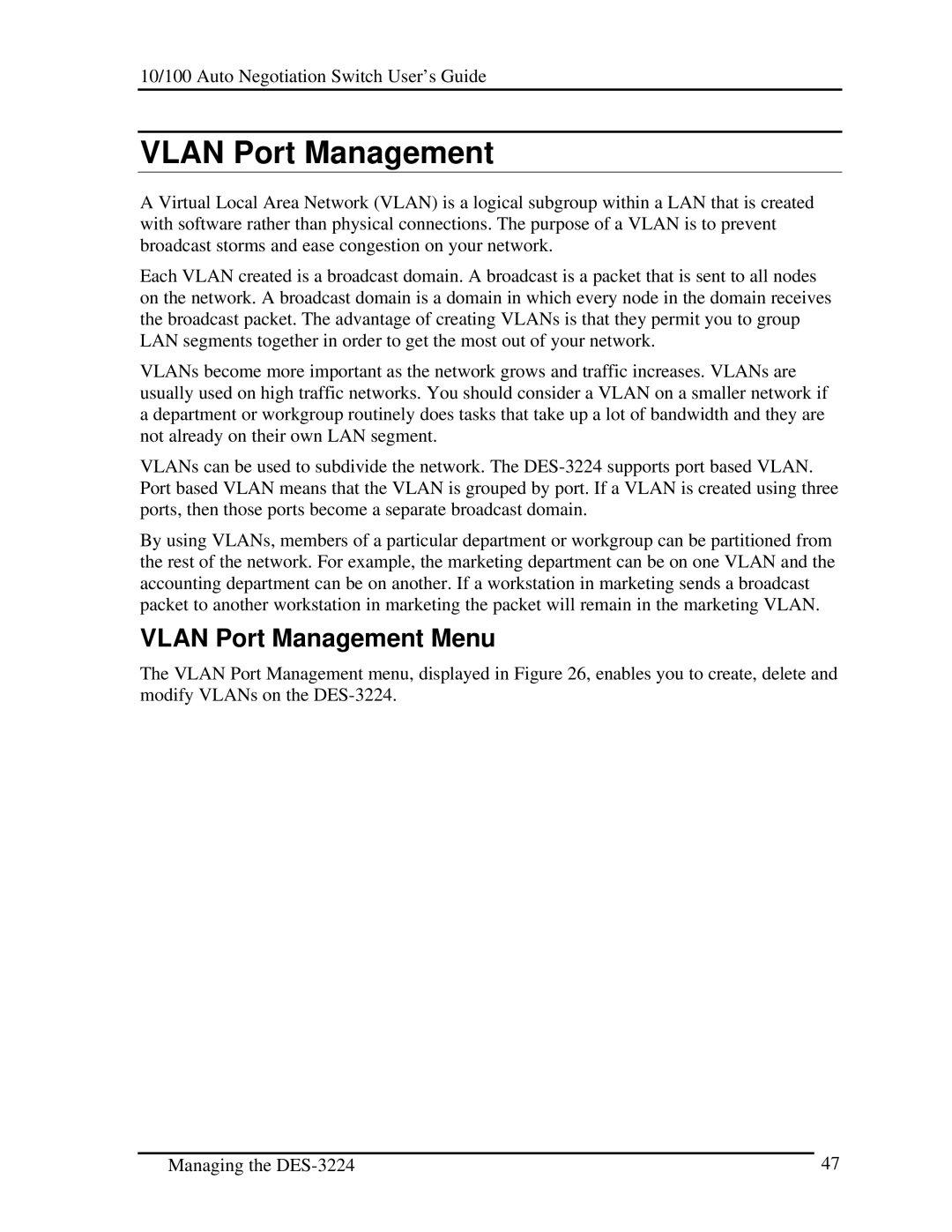
10/100 Auto Negotiation Switch User’s Guide
VLAN Port Management
A Virtual Local Area Network (VLAN) is a logical subgroup within a LAN that is created with software rather than physical connections. The purpose of a VLAN is to prevent broadcast storms and ease congestion on your network.
Each VLAN created is a broadcast domain. A broadcast is a packet that is sent to all nodes on the network. A broadcast domain is a domain in which every node in the domain receives the broadcast packet. The advantage of creating VLANs is that they permit you to group LAN segments together in order to get the most out of your network.
VLANs become more important as the network grows and traffic increases. VLANs are usually used on high traffic networks. You should consider a VLAN on a smaller network if a department or workgroup routinely does tasks that take up a lot of bandwidth and they are not already on their own LAN segment.
VLANs can be used to subdivide the network. The
By using VLANs, members of a particular department or workgroup can be partitioned from the rest of the network. For example, the marketing department can be on one VLAN and the accounting department can be on another. If a workstation in marketing sends a broadcast packet to another workstation in marketing the packet will remain in the marketing VLAN.
VLAN Port Management Menu
The VLAN Port Management menu, displayed in Figure 26, enables you to create, delete and modify VLANs on the
Managing the | 47 |
